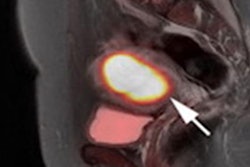Dear Women's Imaging Insider,
Yes, COVID-19 is still a thing and it continues to affect radiology operations.
Maybe you've encountered patients in your imaging practice who presented with the coronavirus or perhaps your colleague recently tested positive. For breast radiologists, the consequences of delayed mammograms have yet to be seen. However, that isn't stopping researchers from continuing to explore the effects of the pandemic on breast cancer screening.
A team from Georgetown University looked at women's responses to perceived COVID-related healthcare disruptions for preventive services, including breast cancer screening. The group found that overall, women reported low levels of such disruptions. However, women who were younger, not working, and non-Hispanic white reported more disruptions. Read more in this edition's Insider Exclusive.
In other news, digital tools have made it easier for patients to schedule breast cancer screening. However, they may also unintentionally exacerbate socioeconomic disparities around breast screening, a team from the University of California, San Diego found.
Also, researchers found that Hispanic, Black, and older women have a higher prevalence of breast arterial calcification on mammography, a possible biomarker for coronary artery disease. They wrote that such findings could help patients kickstart lifestyle changes and consultation with professionals for heart health.
Additionally, MRI can show breast tissue features in women who may be at risk for recurrent breast cancer. A South Korean research team wrote that analyzing the level of background parenchymal enhancement on surveillance MRI could help with strategy for treatment follow-up.
Plus, check out the following women's imaging stories:
- Singaporean researchers found that manually setting radiation doses on mammography systems can reduce exposure for patients.
- Dual-energy x-ray absorptiometry exams used on pregnant women suggest that exposure to synthetic manufacturing chemicals may weaken children's bone health later in life, a U.S. team found.
- A study of pregnant women found that women who recover from COVID-19 have stiffer placentas than women without a history of the coronavirus, and that more newborns in the COVID recovery group needed intensive care.
- Breast radiologists are interested in using artificial intelligence in mammography, but only if it meets certain preferences, a Harvard team found.
Find more articles like these by regularly visiting your Women's Imaging Community!




















